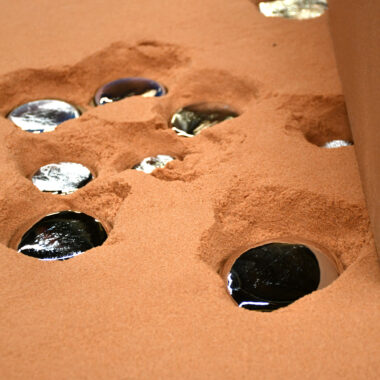Casting Aluminum 101: Crucial Steps for Beginners
Casting Aluminum 101: Crucial Steps for Beginners
Blog Article
Light Weight Aluminum Casting Providers Revealed: Important Insights and Tips
Checking out the world of aluminum casting services can reveal a globe of detailed procedures and nuanced considerations that are important for effective end results. As we venture right into the world of light weight aluminum casting services, prepare to uncover the essential aspects that can form the trajectory of your jobs and boost your understanding of this intricate craft.
The Fundamentals of Aluminum Casting
What essential processes are included in aluminum casting that develop the backbone of this commonly utilized manufacturing technique? Aluminum casting is a versatile and affordable method used in various sectors to develop facility and complex steel elements. The process begins with the melting of light weight aluminum ingots in a heater, normally at temperature levels ranging from 1220 ° F to 1670 ° F, depending on the specific light weight aluminum alloy being made use of. When molten, the aluminum is poured right into a pre-designed mold and mildew cavity, where it strengthens and takes the form of the mold.
After solidification, the mold is eliminated, and the spreading undertakes finishing processes such as heat therapy, surface area, and machining coating to meet the required specs. Comprehending these essential processes is necessary for attaining high-grade light weight aluminum spreadings with specific measurements and mechanical residential or commercial properties.
Different Casting Methods Explained
Exploring the various strategies used in light weight aluminum casting provides important insights right into the varied techniques used to achieve precise and intricate steel components. One common approach is sand spreading, where a mold is created making use of compressed sand around a pattern of the desired part. This strategy is economical and versatile, appropriate for both easy and complex forms. One more approach, pass away casting, entails injecting molten light weight aluminum into a steel mold and mildew under high stress. Pass away casting makes it possible for high precision and repeatability, making it ideal for automation of tiny to medium-sized parts. For more intricate layouts, investment spreading is commonly chosen. This approach utilizes wax patterns that are dissolved, leaving a dental caries for the molten light weight aluminum to fill up. Financial investment casting returns accurate information and smooth finishes, making it prominent in industries such as aerospace and automotive. Each spreading method has its special benefits and is chosen based upon factors such as quantity, complexity, and expense factors to consider.
Factors to Consider When Picking a Supplier
When choosing an aluminum spreading company, reviewing their experience and expertise is essential for guaranteeing high quality and dependability in the manufacturing process. The service provider's experience in the field suggests their experience with different casting techniques, potential challenges, and best techniques. It is more essential to inquire about the kinds of tasks they have actually worked with in the past, ensuring they align with the complexity and requirements of your very own job.
Additionally, consider the provider's online reputation within the market. Look for testimonials, testimonies, and study that demonstrate their ability to supply premium aluminum spreadings consistently. A reputable supplier will usually have accreditations or affiliations with market organizations, showcasing their commitment to quality and adherence to market criteria.
Additionally, analyze the company's capacities in terms of modification, volume demands, and task timelines. Guarantee that they can suit your specific requirements and have the adaptability to scale manufacturing as called for. Effective interaction and openness regarding expenses, lead times, and quality assurance procedures are also important variables to think about when why not check here choosing an aluminum spreading company.

Typical Obstacles and Solutions
Navigating with the complexities of aluminum spreading processes commonly presents makers with a collection of difficulties that call for innovative options to make certain effectiveness and top quality in production. One typical obstacle faced in aluminum spreading is the development of problems such as porosity, contraction, or go inclusions due to incorrect mold and mildew design or insufficient steel top quality.
Implementing advanced modern technologies like computer-aided layout (CAD) and computer system numerical control (CNC) machining can improve accuracy and uniformity in light weight aluminum casting. By investing in automation and real-time monitoring systems, suppliers can boost procedure control and reduce variations, inevitably boosting the general quality of aluminum actors products.
Tips for Optimizing Your Casting Projects
By ensuring that the gating system is properly designed and properly put, you can boost the flow of liquified light weight aluminum and decrease the opportunities of defects in the final spreading. Additionally, using computer system simulations can help in examining the circulation and predicting of metal throughout the spreading process, enabling for changes to be made prior to actual production begins.

Verdict
To conclude, recognizing the basics of aluminum spreading, various casting techniques, variables to consider when selecting a copyright, common difficulties and remedies, and tips for enhancing spreading tasks are important for successful results. By sticking to these understandings and implementing best businesses, practices and individuals can make sure effective and efficient light weight aluminum spreading solutions that fulfill their details demands and needs.
Recognizing these basic procedures is crucial for attaining high-grade light weight aluminum spreadings with specific measurements and mechanical buildings.
When picking a light weight aluminum spreading service provider, evaluating their experience and proficiency is essential for ensuring top quality and integrity in the production process. Effective interaction and transparency concerning prices, lead times, and top quality control processes are also critical aspects to think about when choosing an aluminum casting solution supplier.
Navigating via the complexities of light weight aluminum spreading processes usually provides manufacturers with a collection of difficulties that call for ingenious solutions to make sure efficiency and top quality in production. One usual difficulty faced in aluminum spreading is the formation of issues such as porosity, shrinking, or incorporations due to incorrect mold and mildew style or poor metal high quality.
Report this page